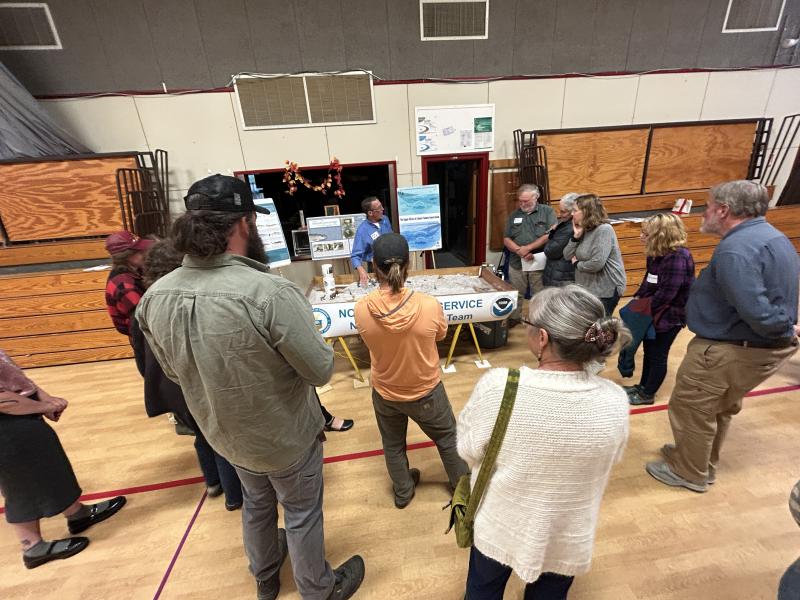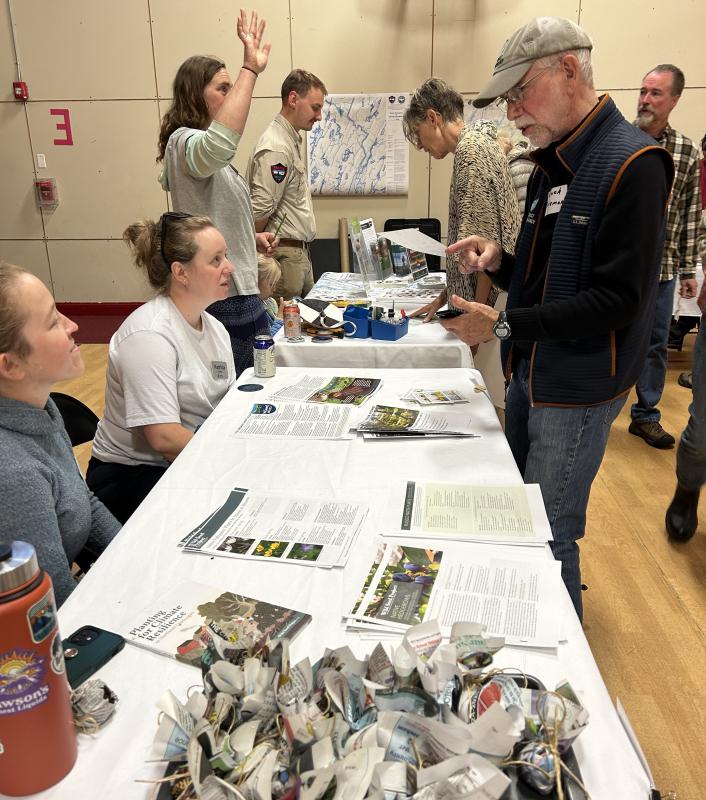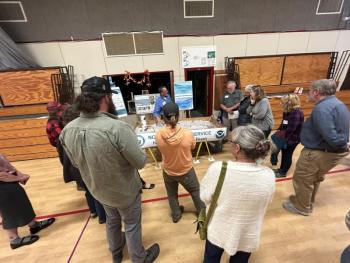Salmon are stars at Midcoast Conservancy’s State of the Sheepscot
Midcoast Conservancy’s State of the Midcoast Series provides an important opportunity for the organization to engage with local communities about conservation work and discuss ways in which working together can help protect and restore the vital lands and waters of Midcoast Maine across its three watersheds.
At this year’s State of the Sheepscot, over 60 community members gathered to hear about the health and well-being of the Sheepscot River watershed. The first half hour featured mingling, munching donated pizza from Sheepscot General, and watching NOAA biologist Max Tritt enact a Stream Smart Table simulation, which provided a compelling visual of the negative impacts undersized road stream crossings have on streams.
The evening’s program began with Co-Executive Director of Operations Kristin Pennock setting the stage with a personal story of why conservation is important, explaining how she witnessed her childhood home morph from a rural forested landscape to sprawling development. She cautioned how unplanned development changes the ecology of a place, forcing wildlife to eke out a living in a fragmented landscape, move elsewhere, or perish.
Next, Sheepscot River Watershed Manager Melissa Cote walked attendees through a 2024 update on Midcoast Conservancy’s work in the Sheepscot watershed regarding Land Conservation, Stewardship, Water Quality, and Aquatic Connectivity. She also addressed some of the threats to local lands and waters, including increasing development pressures, invasive species, and warming waters associated with climate change. Cote wrapped things up by putting out a call-to-action for how the community can help Midcoast Conservancy conserve the unique character and ecology of the Sheepscot watershed for years to come.
Paul Christman, a salmon biologist at the Department of Marine Resources, stole the show with a passionate overview of the importance of the population of endangered Atlantic salmon in the Sheepscot River. Atlantic salmon in the Sheepscot are at the front lines for the species as the southern-most genetically distinct population. The Sheepscot salmon are considered the most “urban” of the remnant populations of the species in Maine and potentially the best suited to face climate change.
Finally, Cote awarded the first ever Sheepscot River Volunteer of the Year award to a very deserving Anneliese (Lili) Pugh, a true champion of the Sheepscot River. Pugh has been a volunteer for the Sheepscot Samplers water quality monitoring program since 1998. In her capacity as a volunteer, she has been a water quality monitor, volunteer coordinator, and helped run the program. Additionally, she has done data analysis, report writing, and has written grants to fund program costs. Outside of the Sheepscot Samplers, Pugh is a property monitor and also volunteers at Hidden Valley Nature Center.
Midcoast Conservancy thanks the Whitefield Elementary School for hosting; and event partners NOAA National Marine Fisheries Service, Beginning with Habitat, and the Sheepscot Knotweed Project.








































